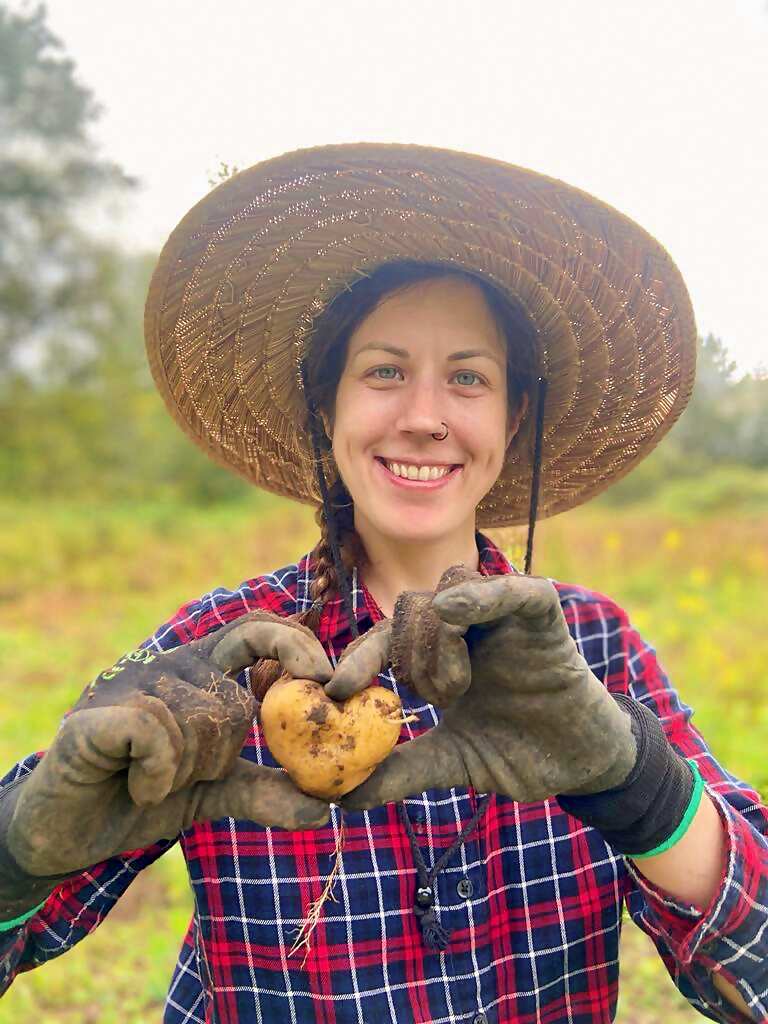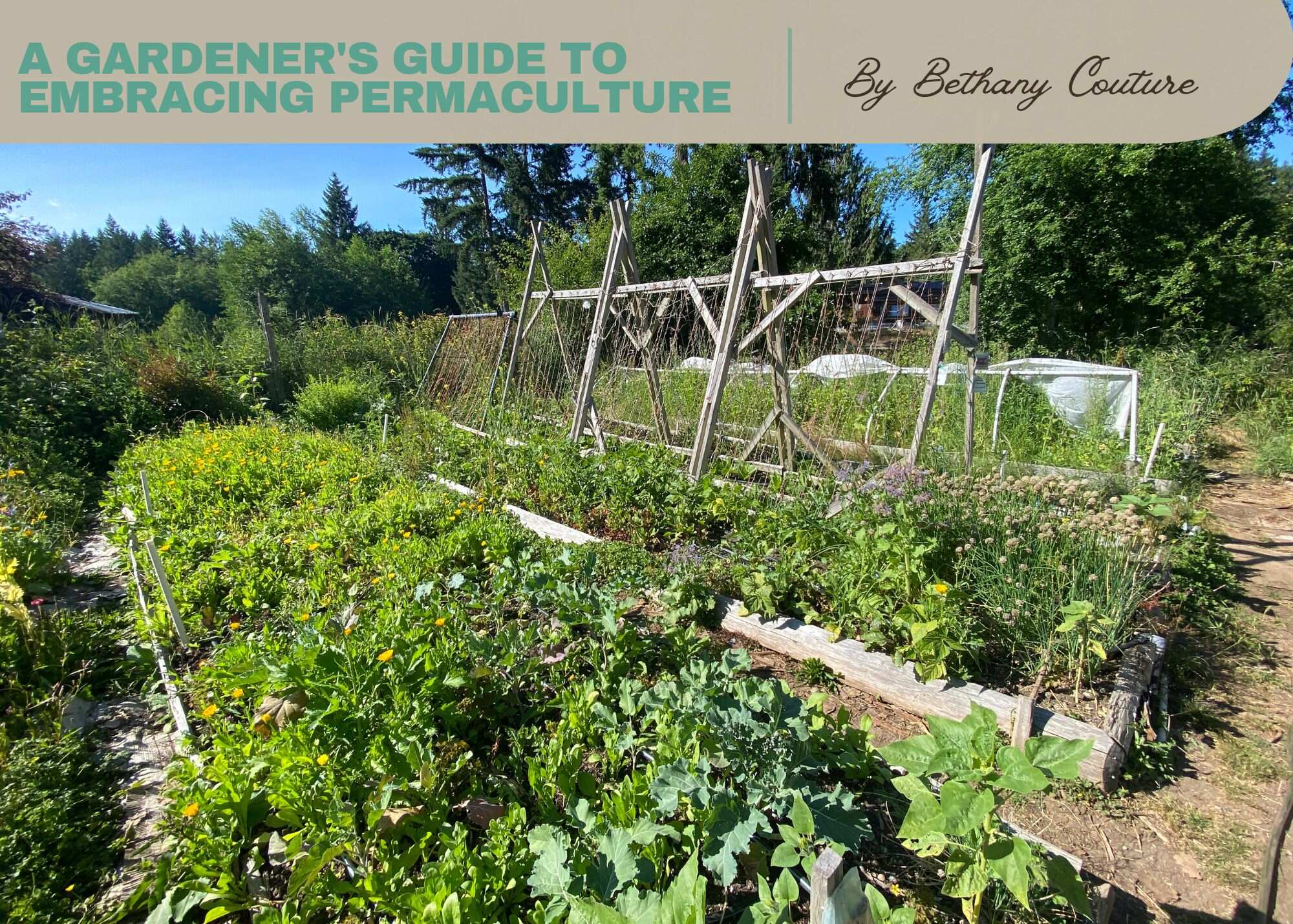A Gardener's Guide to Embracing Permaculture
By Bethany Couture
Permaculture can be challenging to define, but at its core, it is based on creating sustainable systems that mimic the patterns and relationships found in nature. Its holistic approach aims to integrate human activities with natural systems. In the context of gardening, it seeks to establish a harmonious coexistence of people, plants, animals, insects, and the elements to foster a more self-sustaining ecosystem with less need for external inputs. Think of it like orchestrating a symphony where each element of the garden plays a vital role, contributing to the overall health and balance of the space.
The basis of permaculture is its twelve principles and four ethics, which apply to various disciplines, including agriculture, architecture, economics, self-care, and community development. However, today we'll focus on how these principles can be applied to the garden.
One of the simplest permaculture principles to integrate into home gardening is "Obtain a Yield," which means your garden should not only be beautiful but also productive in various ways. A high-yielding garden doesn't always mean producing a lot of food; it can also yield other invaluable resources, such as forage for pollinators, benefits to the soil, and habitat for migrating birds. Ask yourself, what does my garden give back to the world around it? That is a yield.
Another noteworthy permaculture principle for home gardeners to follow is "Use and Value Renewable Resources and Services." By embracing renewable resources like compost, mulch, natural fertilizers, companion planting and integrated pest management practices, we can appreciate the services provided by nature instead of relying solely on what we can buy from a store.
Although all twelve permaculture principles can be applied to gardens, let's delve into a third one, "Apply Self-Regulation and Accept Feedback." Our gardens are our teachers, and by adapting our gardening practices based on the feedback it shares seasonally, we can continuously learn and grow into more refined gardeners.
Permaculture invites you to become a steward of your land, working hand in hand with nature instead of needing to control it. By embracing the permaculture principles in your garden, you're not just growing plants – you're cultivating a thriving ecosystem that benefits you, the planet, and the future.
If you are interested in learning more about all twelve of the permaculture principles, how to curate a thriving high-yielding garden and how to become a more sustainable gardener, then I hope you can join us in the new community education class "Introduction to Permaculture" being offered at the Horticulture Center of the Pacific this spring.
Learn more about the the Saturday, April 6th, 2024 class here https://hcp.ca/event/introduction-to-permaculture/

Bethany Couture is a holistic horticulturalist from Victoria BC. Through her studies, she realized there must be more sustainable ways to cultivate sustenance from the land, which lead her down the path of permaculture and wove together her passions for horticulture, herbalism, mycology, self-sufficiency and environmental sustainability. She is the lead steward of the permaculture garden at the Horticulture Center of the Pacific and is the permaculture instructor at the Pacific Horticulture College. She also runs her own horticulture business, Garden Alchemist, which designs landscapes abundant with edible, medicinal, and native plants.


